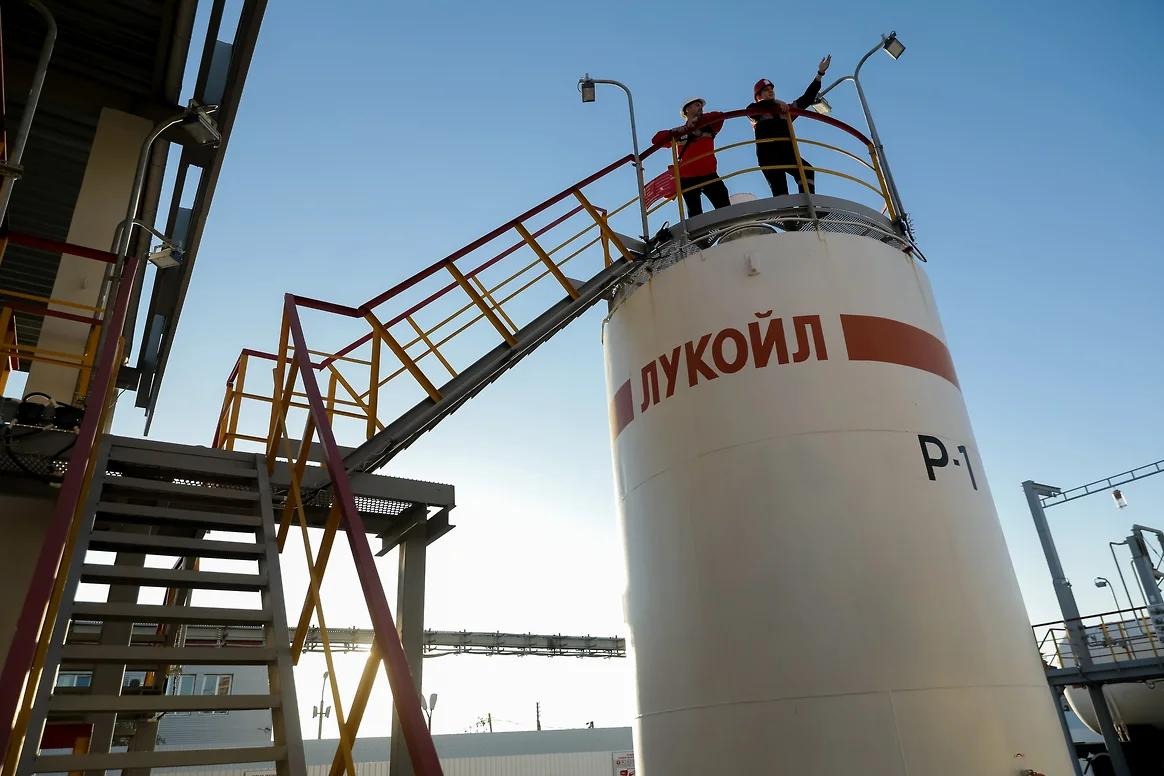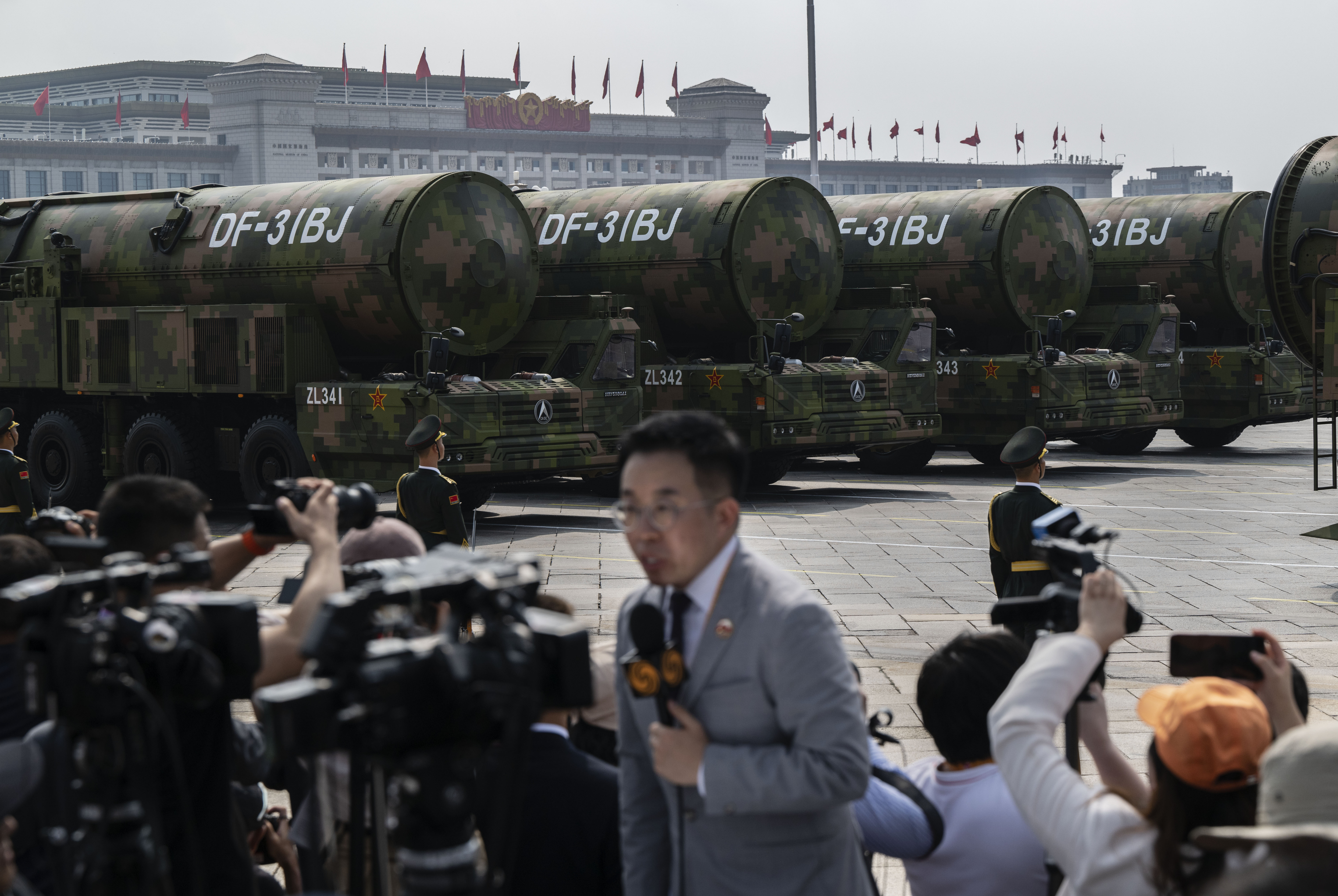THEORIES ON TERRORIST BOMBINGS CONTINUE.
THEORIES ON TERRORIST BOMBINGS CONTINUE.
The terrorist bombings in Russia this month–which have killed nearly 300 people and become part of the justification for Moscow’s attacks on Chechnya–continue to be the subject of wide speculation. While the police have arrested a number of suspects, they say that the three men who actually carried out the bombings are on the run, probably in the territory of Chechnya (NTV, September 26). Meanwhile, the accusations that elements within Russia’s power structures, possibly including some of the country’s powerful “oligarchs,” continue to circulate. Explosives involved in the bombings–two of which killed more than 200 people in Moscow–is said to be the same solid rocket fuel used to power the Topol M strategic missile. This information was presented as evidence that the bombings were not the work of Chechen Islamist terrorists (Moskovsky komsomolets, September 27).
The same source also published an interview with Chechen President Aslan Maskhadov, who asserted that the tycoon and Kremlin insider Boris Berezovsky “provoked” the current conflict. Maskhadov also claimed that Chechnya’s special services has information that Berezovsky met with and transferred money to radical Chechen field commanders–including Shamil Basaev, to whom Berezovsky, Maskhadov claimed, gave a million dollars (Moskovsky komsomolets, September 27).
Earlier this month, a Russian newspaper sympathetic to Moscow Mayor Yuri Luzhkov and extremely hostile to Berezovsky, published what it claimed to be excerpts of telephone conversations held in June between a “person with a voice like” Berezovsky’s and Chechen rebel representatives, in which money transfers appeared to be under discussion–an obvious suggestion that the tycoon was behind the August incursion by Chechnya-based Islamic radicals into neighboring Dagestan (see the Monitor, August 24). In a separate interview with the German weekly Der Spiegel, Maskhadov said that he was “100 percent sure” that Chechens were not behind the bombings in Moscow and other Russian cities, adding that it was possibly the work of Russian officials trying to play “the Chechen card” in the gradual warm-up to next year’s presidential elections (Reuters, September 25).
Meanwhile, Luzhkov said over the weekend that if it is established that “certain oligarchs and Kremlin circles” were involved in unleashing the war in Dagestan, those involved “must be treated even more mercilessly than Basaev.” Such people, he explained, “must not hope that they will be able to hide abroad or use their capital. They will have to answer for everything they have done” (Russian agencies, September 26).
Adding to the suspicions about the bombings was the September 24 announcement by Federal Security Service Director Nikolai Patrushev, that a bomb found on September 22 in an apartment building in the city of Ryazan was actually a training “exercise” arranged by the authorities (NTV, September 24). The panic from the discovery of the “bomb” caused thousands of apartment dwellers in Ryazan to evacuate their buildings (Moscow Times, September 25). Last week, in what some observers also considered strange behavior by the authorities, demolition experts razed the remains of the Moscow apartment building destroyed in a September 8 blast which killed ninety-four (Moscow Times, September 21). The fact that the crime scene was destroyed only thirteen days after the explosion was rather peculiar from the point of view of fact-finding. Meanwhile, a recent front page article in a Russian newspaper discussed the theory that Prime Minister Vladimir Putin and members of the Kremlin inner circle may have been behind the wave of terrorist attacks with the aim of creating the pretext for a state of emergency (Nezavisimaya gazeta, September 25). The publishing paper, which is owned by Berezovsky, would appear to be trying to shift the heat onto Putin.
IVANOV’S U.S. VISIT: NO MAJOR IMPACT?


